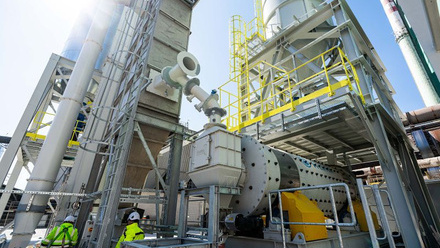Call for input: the role of batteries and fuel cells in achieving Net Zero
IOM3 will be submitting written evidence to the House of Lords Science and Technology Committee’s inquiry into the role of battery and fuel cell technologies in achieving the UK’s ambition to reach net-zero greenhouse gas emissions by 2050.

The Committee is seeking evidence on the following questions:
1. To what extent are battery and fuel cell technologies currently contributing to decarbonisation efforts in the UK?
- What are the primary applications of battery and fuel cell technologies for decarbonisation, and at what scale have they been deployed?
2. What advances have been made in battery and fuel cell technologies in recent years and what changes can we expect in the next ten years (for example, in terms of energy density, capacity, charging times, lifetimes and cost reduction)?
- What advances are expected beyond this timeframe, but in time to have an impact upon the 2050 net-zero target? Are there any fundamental limits to these technologies that would affect their contribution to the target?
- Are there any implications of next generation battery technologies that could make the charging infrastructure we will be installing between now and 2030 obsolete?
- What are the implications on battery life of multiple charge/discharge cycles, for example when used to support storage and frequency management on the grid?
3. What are the opportunities and challenges associated with scaling up the manufacture of batteries and fuel cells, and for manufacturing batteries and fuel cells for a greater number and variety of applications? Is the UK well placed to become a leader in battery and fuel cell manufacture?
- What supply chain considerations need to be taken into account when scaling up battery and fuel cell manufacture in the UK?
4. Is the right strategy, funding and support in place to enable the research, innovation and commercialisation of battery and fuel cell technologies in the UK?
- Is the UK doing enough to accelerate new developments from low technology readiness levels right through to commercial application in the UK?
- Does the UK have the workforce and skillsets required for battery and fuel cell research and manufacture? If not, what are the challenges associated with developing this expertise?
5. Which countries are currently the leaders in battery and/or fuel cell science and technology and where, if anywhere, does the UK have a lead or other advantages?
6. In what sectors could battery and fuel cell technologies play a significant role?
- What are the engineering and commercial challenges associated with using these technologies, or deploying them to a greater extent, in these sectors?
- What will be the likely balance between battery and hydrogen fuel cell technologies (and other options) in a fully decarbonised land transport sector (e.g. heavy and light vehicle transport)?
7. How should battery and fuel cell technologies be integrated into the wider UK energy system, and what are the challenges associated with integration (e.g. infrastructure, deployment, system operation, regulatory frameworks)?
- To what extent can batteries (including vehicle batteries) be used for energy storage and frequency management on the grid, and what needs to happen to enable this?
- Into which other parts of the UK’s energy system could batteries or fuel cells be integrated, and what would be the challenges and opportunities associated with these uses?
8. What are the life cycle environmental impacts associated with batteries and fuel cells (e.g. in resource extraction, product manufacture, operation, reuse and recycling), and how can these be managed as production and usage increase?
- Please give examples of successful battery reuse or recycling, including the intentional design of second life applications.
- Given a potential global vehicle fleet approaching 2 billion vehicles by 2050, will all of the materials needed for battery and fuel cell production be available for manufacturing based in the UK?
9. What are the costs and benefits of using battery and fuel cell technologies in their various applications, including when integrated into the wider energy system?
- To what extent are costs and benefits of the technologies affected by the levels of deployment or their regulatory treatment?
- Are there alternatives that should be considered for particular sectors?
Help us to contribute
To contribute to the submission, please send your comments to [email protected] by Tuesday 23 March or get in touch for more information.
View the full inquiry at https://committees.parliament.uk/work/1083/







